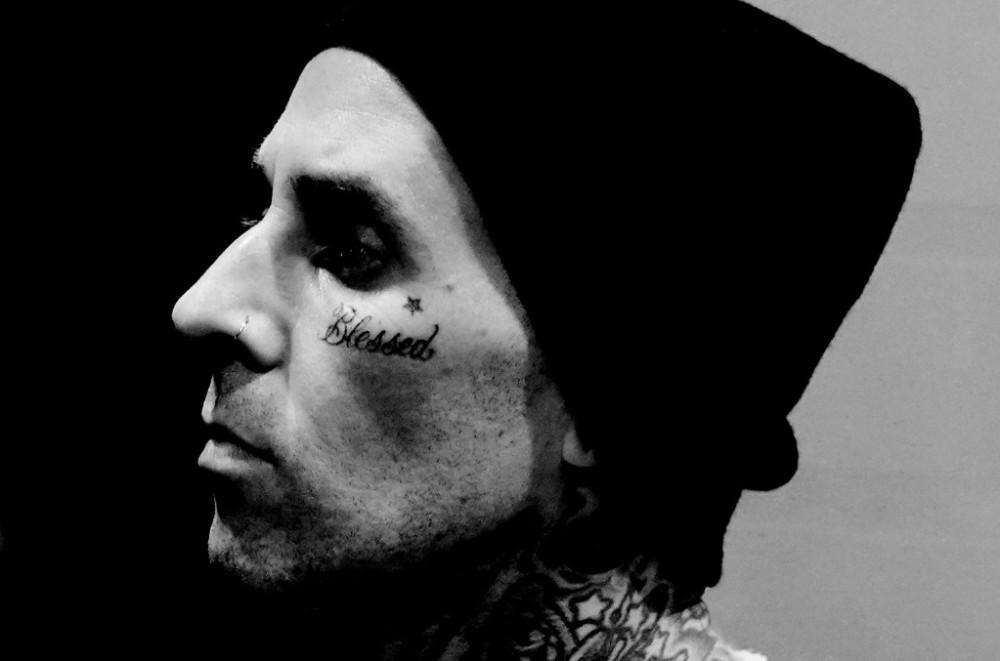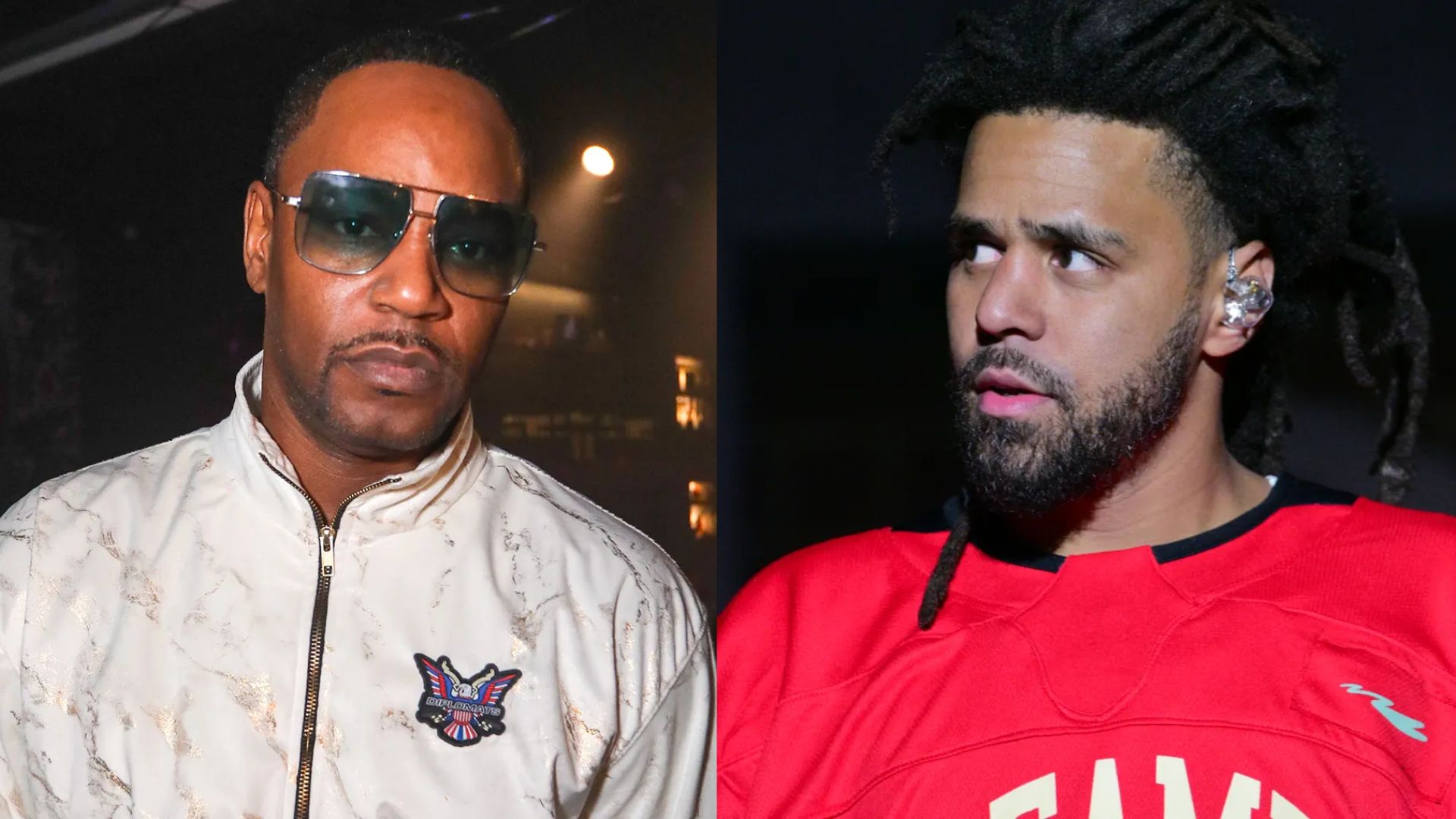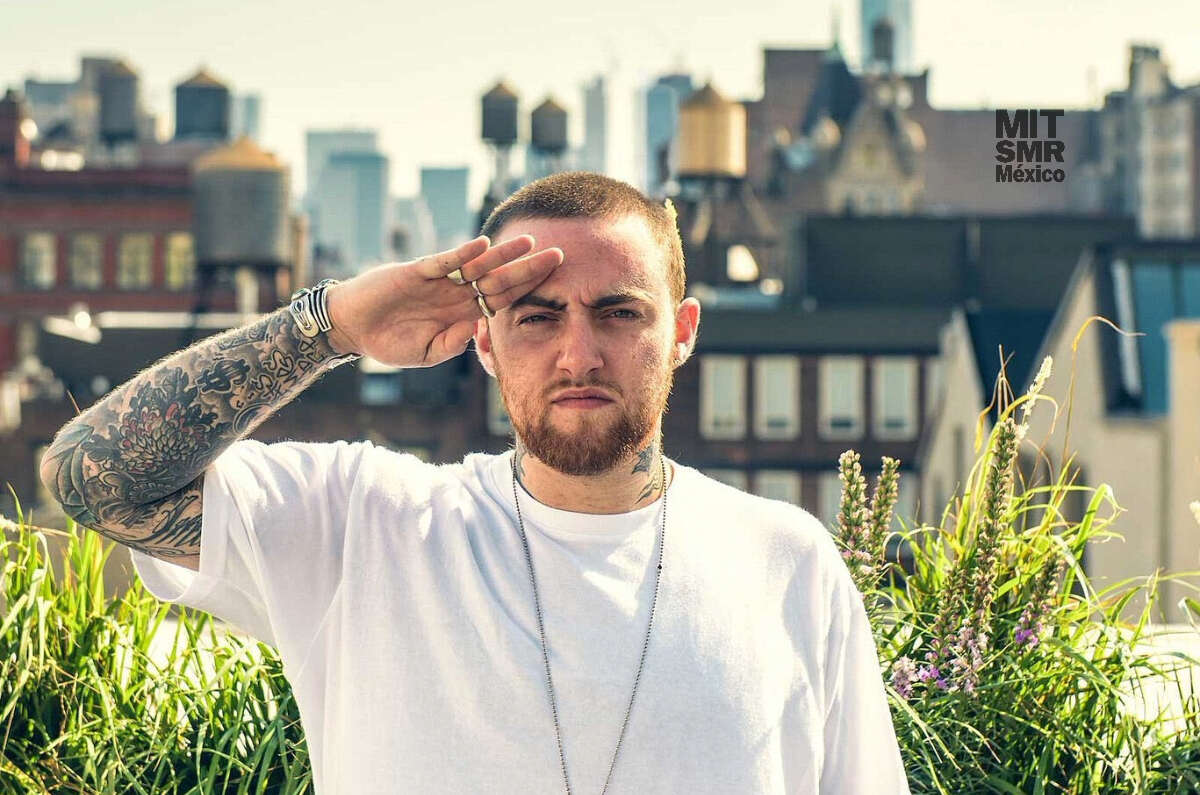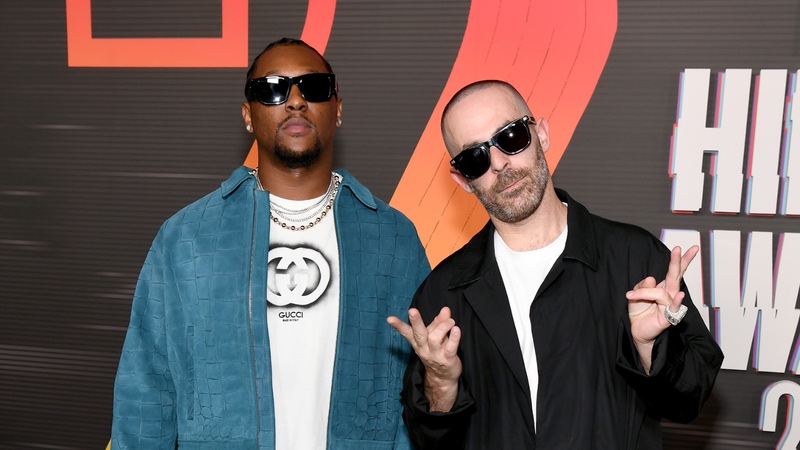Travis Barker’s one of the most successful artists in the music industry, but he has no interest in resting on his laurels. He rose to fame as the drummer for Blink-182, but has started living a second life as a rap producer and go-to session player for emcees looking to spice up beats with live drums.
After collaborating with musicians and rappers on Atlantic Records, Barker was approached by Johnny Minardi and Gregg Nadel from Elektra Records about a relationship outside of straightforward production. The result is DTA Records, Barker’s new playground for emerging artists and legendary rappers.
His latest single, “Dogs–t,” features two up-and-coming emcees, Jasiah and Nascar Aloe. Before that, Barker put out “Gimme Brain,” which features Lil Wayne and Rick Ross. Barker’s appeal to world famous rappers has always been apparent, but really crystallized in the last decade.
“The first thing that opened my eyes was when Puff Daddy asked me to be in the ‘Bad Boys for Life’ video,” Barker explains to Billboard. “Everyone was going crazy for New York rap and I was just so excited. Then, literally months later, Bun B and Pimp C asked me to make a beat for one of their projects. It was so organic.”
As an industry veteran, Barker sees his role as label boss to be one of protection. He’s a sage adviser disguised as an executive, protecting new artists from the jaws of a monstrous industry. “My whole point of even exploring this project is to look out for the artists, protect the artists, and guide the artists,” he says. “I want to develop my artists way before bigger labels throw it against the wall.”
Using his appeal and Rolodex to release big event singles, Barker is pairing well-known artists with smaller ones to bring attention to his up-and-comers. It’s a self-feeding ecosystem, and it comes purely from Barker’s desire to be the best musician, producer, and label boss he can be: “Finding out how I fit into the rap world is one of the most awesome things that has ever happened to me.”
Read on for more from Barker about the label, the new music he’s working on, and more.
How did DTA and the desire to start a label come about?
I was working with a lot of artists that were over at Atlantic, like Jasiah, grandson, and FEVER 333. I was working with artists that were outside of the Warner system too, like Nascar Ahloe and Machine Gun Kelly. During that process, I had a great relationship with Johnny Minardi over there, and he was like, “Yo, you know, I talked to Gregg Nadel, co-president of Elektra Records] over at the label.” They had interest in doing something together outside of me producing and playing drums on a bunch of these artists’ songs. They approached me about some kind of label deal or something where we develop artists together.
What does developing artists satisfy for you that producing or playing with Blink-182 doesn’t?
It’s just being able to see things through and make sure you don’t hear of the stories you so often do about artists getting signed to a label. Maybe someone doesn’t pick the best first single and it doesn’t work right away, and then the next thing you know, the artist is dropped and his project is in limbo. I’m just trying to protect that whole process where they won’t be dropped for exploring new sounds.
Where does that desire come from for you? Because you could happily just sit back, do production, and play with Blink-182. What is it about protecting younger artists that is a passion of yours?
It’s the next step after what I was doing. I’d have artists come through, I’d make songs with them, a label would put them out, I’ll go and play with the artists, perform with the artist, and do all of that. Now I’m taking it one step further and looking out for the artist — I’m co-signing the artist. I’m approaching these projects like they’re my own, which I do anyways. Even groups outside of what’s on Atlantic or GTA records, like the MGK album I just made, I love it as if it was mine. I have trouble disconnecting myself or not caring about projects like they’re my own.
Is there any concern for you as a producer to shed the label of ‘Travis Barker of Blink-182’?
I definitely think about that. It’s just recently happened where if I’m out and about, people will come up and talk about the song I did with Yungblud or $uicideboy$. People have started to mention all of the other artists I work with besides Blink, where forever it was just Blink, Blink, Blink.
I’m slowly turning that corner. I’m not worried about what people know me for, but the more my career has gone on, people have started to realize that I live in different genres. I’m able to produce some new genres and you can’t really box me in or hold me to one genre of music.
When did you realize that rap production and live drums on rap production were ble styles for you?
The first thing that opened my eyes was when Puff Daddy asked me to be in the “Bad Boys for Life” video. At the time he was working with a Black Rob and G. Dep and this whole New York thing was happening, like Method Man and Wu Tang. Everyone was going crazy and I was just so excited.
Then, literally months later, Bun B and Pimp C asked me to make a beat for one of their projects. It was so organic and it felt so good to be able to give back because I’ve always been obsessed with making beats and playing along with rap records.
How did “Gimme Brain” come about, and how did you get Wayne and Ross on there?
I had a record back in the day called “Can a Drummer Get Some” that has Swizz Beatz, Game, Rick Ross and Wayne all featured. I toured with Wayne and Rick Ross on the I Am Music Tour, and then played on Wayne’s rock album and played on “Drop the World.” We also performed that at the Grammy’s one year.
Wayne and I have always been in touch and have always been friends. Same with Ross. If I’m in Vegas playing a show and he’s in Vegas playing a show, we always link up. I just had the beat for “Gimme Brain” laying around, so I just sent Wayne the beat and he snapped on it and sent it right back. Then I sent it to Ross. It was that easy.
You have some more singles coming up. Is there an organizing theme for all of them or are you just trying to drop them and see how it goes from there?
I have a bunch of records I’m sitting on, so when we’re getting ready to put out songs from lesser known artists, we can highlight it with a bigger track. I have a record with Nascar Aloe and Jasiah that’s going to come out; I have some stuff with this kid OmenXIII; I have stuff with Smokepurpp, stuff with Yachty and Dej Loaf, and one with Run the Jewels. I don’t think about it as an album, but rather as singles every other month.
So you use your own name and the names of people like Ross, Yachty, and Run the Jewels to bring attention to artists that you want to highlight in the future? That’s an innovative of approaching it.
I’m very picky about what I bring to the label. It has to be someone I feel comfortable taking a picture with and co-signing, saying I believe in this person and I think that this person is going to change music or at least make a huge f–king dent in music. I just don’t want to sign some random person.
After having been in an industry that can be at times very exhausting, what keeps you going, motivated, and fresh?
Being creative and being able to work with different artists every day. Yesterday I was in with grandson and Rico Nasty. I love Rico Nasty and we were making some straight up Slipknot-sounding songs with her.
My life today is with Goody Grace and Machine Gun Kelly, and tomorrow it might be with Fever 333. Being able to jump around just keeps me fresh and keeps me feeling like I’m constantly able to hit the reset button every day. I feel so blessed to be able to do that.



